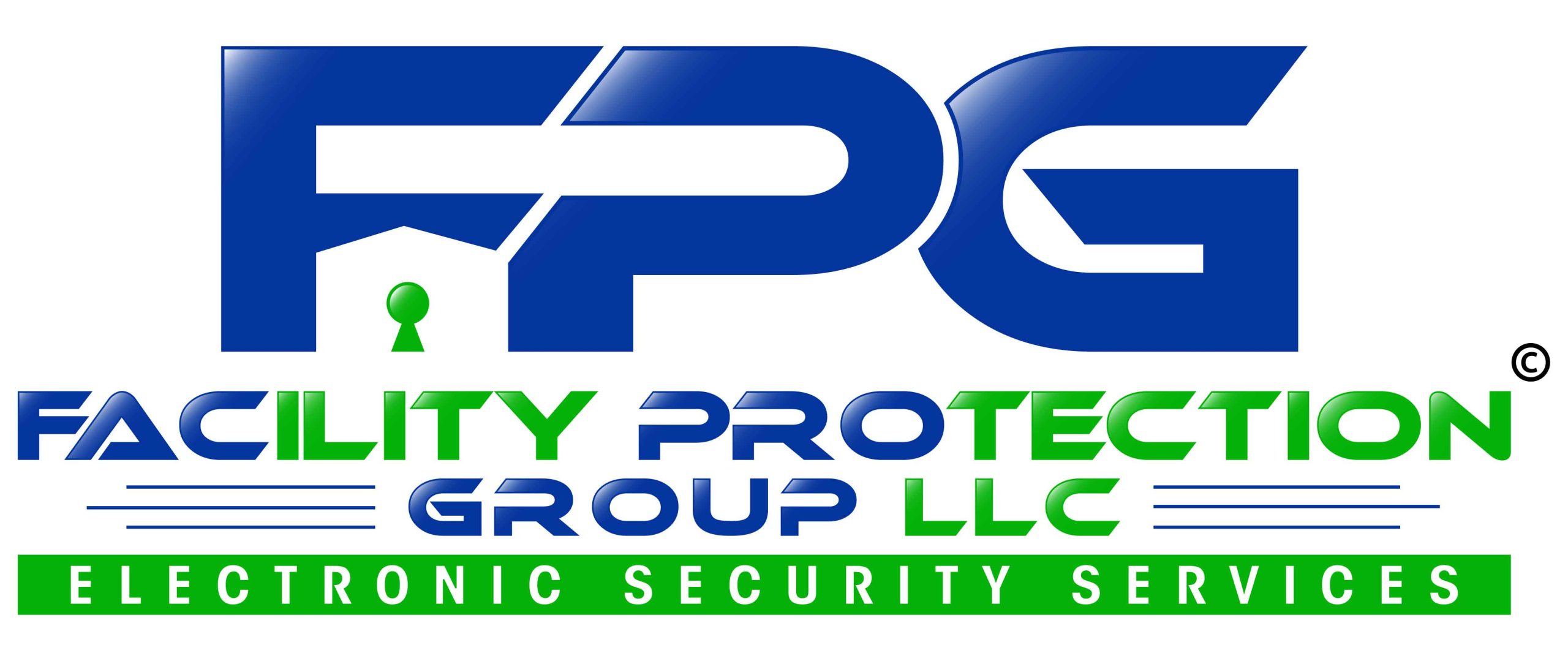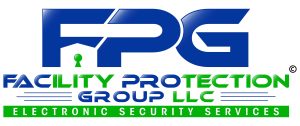
Assessing Your Commercial Security Landscape
Understanding Your Operational Needs
Before embarking on the selection process, it’s essential to conduct a comprehensive assessment of your commercial property and operations. This involves evaluating factors such as the size and layout of your premises, the nature of your business activities, the number of employees and visitors, and any industry-specific compliance requirements.
By thoroughly understanding your operational needs, you can ensure that your commercial security system addresses the most pressing concerns and aligns with your overall business objectives. This may include considerations such as the level of access control required, the need for real-time monitoring and response, or the integration of security data with other business systems.
Identifying Potential Vulnerabilities
Alongside your operational assessment, it’s crucial to identify potential vulnerabilities within your commercial property. This may include analyzing the physical security of your building, such as the strength of entry points, the visibility of high-risk areas, and the effectiveness of your perimeter defenses.
Additionally, you should consider the potential for cyber threats, as modern commercial security systems often rely on interconnected digital technologies. Evaluating your network infrastructure, data storage protocols, and employee cybersecurity awareness can help you pinpoint areas that require enhanced protection.
Benchmarking Against Industry Best Practices
To ensure that your commercial security system aligns with industry standards and best practices, it’s valuable to research the security measures employed by your peers and competitors. This can provide valuable insights into the latest trends, technologies, and strategies being adopted within your industry.
By benchmarking your security measures against industry leaders, you can identify opportunities for improvement and ensure that your commercial security system is equipped to meet the evolving threats and expectations of your customers, partners, and regulatory bodies.
Integrating the Essential Security Components
Access Control Systems
At the heart of any robust commercial security system lies a comprehensive access control solution. Modern access control systems go beyond traditional lock-and-key methods, offering a range of advanced features such as biometric authentication, mobile credentials, and centralized management.
By controlling and monitoring who enters your commercial premises, access control systems play a crucial role in deterring unauthorized access, preventing theft, and ensuring the safety of your employees and visitors. Integrating access control with other security components, such as video surveillance and alarm systems, can further enhance the overall effectiveness of your security infrastructure.
Video Surveillance
High-quality video surveillance is a cornerstone of commercial security, providing real-time monitoring and valuable forensic evidence in the event of an incident. Today’s commercial security cameras offer a vast array of capabilities, including high-definition imaging, advanced analytics, and remote access capabilities.
By strategically placing cameras throughout your commercial property, you can maintain constant vigilance, detect suspicious activities, and quickly respond to emergencies. Integrating your video surveillance system with other security components, such as access control and alarm systems, can further improve your situational awareness and decision-making capabilities.
Alarm Systems
Commercial alarm systems are designed to detect and alert you to a wide range of threats, including intrusions, fire, and environmental hazards. These systems can incorporate a variety of sensors, such as motion detectors, glass-break sensors, and smoke alarms, to provide comprehensive coverage and rapid response.
Integrating your commercial alarm system with other security components, such as access control and video surveillance, can enhance the overall effectiveness of your security infrastructure. For example, by linking your alarm system with your video surveillance, you can receive real-time alerts and visual confirmation of any triggered events, enabling a more informed and efficient response.
Cybersecurity Measures
In today’s increasingly digital landscape, the security of your commercial property extends beyond the physical realm. Robust cybersecurity measures are essential to protect your digital assets, including sensitive data, network infrastructure, and connected devices. Implementing a comprehensive cybersecurity strategy, which may include firewalls, antivirus software, and employee training, can help safeguard your commercial property against a wide range of cyber threats, such as data breaches, ransomware attacks, and unauthorized access to your systems.
By integrating your cybersecurity measures with your physical security components, you can create a cohesive and resilient security infrastructure that addresses both digital and physical threats.
The Power of Integrated Security Solutions
Enhanced Situational Awareness
One of the primary benefits of an integrated commercial security system is the enhanced situational awareness it provides. By seamlessly connecting various security components, such as access control, video surveillance, and alarm systems, you can gain a comprehensive understanding of the activities and events occurring within your commercial property.
This holistic view allows security personnel to quickly identify and respond to potential threats, as well as analyze patterns and trends to proactively address vulnerabilities. Real-time data sharing and automated alerts can further streamline the decision-making process, enabling a more efficient and effective security posture.
Improved Operational Efficiency
Integrated commercial security systems can also contribute to improved operational efficiency within your business. By automating various security-related tasks, such as visitor management, access control, and environmental monitoring, you can free up your staff to focus on core business activities.
Additionally, the integration of security data with other business systems, such as facility management or inventory control, can provide valuable insights that can inform strategic decision-making and optimize resource allocation. This can lead to cost savings, reduced downtime, and enhanced productivity throughout your organization.
Seamless Scalability and Flexibility
As your commercial business grows and evolves, your security needs are likely to change as well. An integrated security system designed with scalability and flexibility in mind can adapt to these changing requirements, allowing you to easily add or modify security components as needed.
This scalability can be particularly beneficial when expanding to new locations, integrating new technologies, or responding to emerging threats. By leveraging a modular and interconnected security infrastructure, you can ensure that your commercial property remains protected, even as your business landscape continues to evolve.
Enhanced Compliance and Risk Mitigation
Many commercial industries are subject to strict regulatory requirements and compliance standards, such as data privacy regulations, workplace safety guidelines, and industry-specific security protocols. An integrated commercial security system can help you navigate these complex compliance landscapes more effectively.
By centralizing security data and automating reporting processes, you can demonstrate your adherence to relevant regulations and reduce the risk of costly fines or legal penalties. Additionally, the enhanced threat detection and response capabilities of an integrated system can help mitigate the potential for security breaches, property damage, or other business-disrupting incidents.
Designing Your Customized Commercial Security Solution
Conducting a Thorough Risk Assessment
Developing an effective commercial security system begins with a comprehensive risk assessment. This process involves carefully analyzing your commercial property, operations, and potential threats to identify the most critical vulnerabilities and security requirements.
During the risk assessment, you should consider factors such as the physical layout of your premises, the value and sensitivity of your assets, the potential for natural disasters or environmental hazards, and the likelihood and impact of various security incidents. By thoroughly understanding your unique risk profile, you can prioritize security measures and allocate resources more effectively.
Selecting the Right Security Components
With a clear understanding of your security needs and risk profile, you can begin the process of selecting the appropriate security components to build your integrated commercial security system. This may involve a combination of access control, video surveillance, alarm systems, and cybersecurity measures, each tailored to address specific concerns and requirements.
When choosing security components, it’s essential to consider factors such as compatibility, scalability, and user-friendliness. Selecting products and solutions that can seamlessly integrate with one another and with your existing business systems will be crucial in creating a cohesive and efficient security infrastructure.
Designing the System Architecture
Once you have identified the necessary security components, the next step is to design the overall system architecture. This involves determining the optimal placement and configuration of each component, as well as the communication protocols and data flow between them.
The system architecture should be designed with flexibility and future expansion in mind, allowing for the easy integration of new technologies or the modification of existing components as your business needs evolve. Additionally, the architecture should prioritize redundancy and failover mechanisms to ensure the continued operation of your commercial security system in the event of a disruption or failure.
Implementing and Integrating the System
Proper implementation and integration of your commercial security system are crucial to its long-term success. This process may involve a range of tasks, including physical installation, software configuration, network integration, and user training.
It’s important to work closely with experienced security system integrators or specialized commercial security companies to ensure that the installation and integration process are carried out efficiently and in compliance with relevant industry standards and regulations. This collaboration can also help you identify opportunities for optimization and ensure that your security system is fully operational and aligned with your business objectives.
Ongoing Maintenance and Monitoring
The successful deployment of your commercial security system is only the beginning. Continuous maintenance, monitoring, and optimization are essential to maintaining the effectiveness of your security infrastructure over time.
This may include regularly scheduled system updates, firmware upgrades, and security assessments to address emerging threats and vulnerabilities. Additionally, ongoing monitoring and data analysis can help you identify trends, detect anomalies, and make informed decisions about future security enhancements.
By prioritizing the maintenance and monitoring of your commercial security system, you can ensure that your investment continues to provide the highest level of protection for your business, its assets, and its employees.
Maximizing the Benefits of Integrated Commercial Security
Enhancing Employee and Customer Safety
At the heart of an effective commercial security system is the safety and well-being of your employees and customers. By integrating security components such as access control, video surveillance, and alarm systems, you can create a comprehensive safety net that deters and responds to a wide range of potential threats.
This enhanced safety and security can have a positive impact on employee morale, productivity, and retention, as well as customer confidence and loyalty. By demonstrating your commitment to their well-being, you can foster a sense of trust and security that reinforces your brand’s reputation and value proposition.
Protecting Critical Assets and Data
In today’s digital age, the protection of critical assets, both physical and digital, is paramount. An integrated commercial security system can safeguard your valuable inventory, equipment, and intellectual property from theft, vandalism, and unauthorized access.
Furthermore, by integrating cybersecurity measures with your physical security components, you can create a robust defense against data breaches, cyber attacks, and other digital threats. This comprehensive approach to asset protection can help you mitigate the potentially devastating financial and reputational consequences of security incidents.
Optimizing Business Operations and Efficiency
Beyond enhancing safety and security, an integrated commercial security system can also contribute to the optimization of your business operations and overall efficiency. By automating various security-related tasks, such as access control and environmental monitoring, you can free up your staff to focus on core business activities.
Additionally, the integration of security data with other business systems can provide valuable insights that can inform strategic decision-making, resource allocation, and process improvements. This can lead to cost savings, reduced downtime, and enhanced productivity throughout your organization.
Demonstrating Compliance and Responsible Stewardship
As mentioned earlier, many commercial industries are subject to strict regulatory requirements and compliance standards. An integrated commercial security system can help you navigate these complex landscapes more effectively, demonstrating your commitment to responsible stewardship and adherence to industry best practices.
By centrally managing security data, automating reporting processes, and maintaining detailed audit trails, you can provide evidence of your compliance efforts to regulatory bodies, insurance providers, and other stakeholders. This not only mitigates the risk of costly fines or legal penalties but also enhances your reputation as a responsible and trustworthy business partner.
In today’s dynamic and challenging commercial landscape, an integrated security system is no longer a luxury but a necessity. By carefully assessing your security needs, selecting the right components, and designing a customized solution, you can unlock the full potential of integrated commercial security to protect your business, safeguard your assets, and optimize your overall operations.
We Create Integrated Security Systems
Integrated security system design and implementation provides a comprehensive approach to safeguarding assets and ensuring the safety of people within a variety of environments. By combining various security components such as access control, video surveillance, intrusion detection, and physical communication systems into a unified framework, integrated security systems offer a cohesive and interconnected approach to security management.
> Learn More
Contact Us (813-570-8669) for a free consultation!
View Past Projects
—
 About Facility Protection Group
About Facility Protection Group
Facility Protection Group is a Florida state certified systems contractor specializing in electronic security services supporting both traditional and cloud based Access Control (Card Access), Video Surveillance / CCTV, Audio / Video Intercoms, and Intrusion Alarm Systems. Founded in 2018 and located in Tampa, Florida; Facility Protection Group has assembled a team that has a tremendous wealth of industry knowledge and experience.

 About Facility Protection Group
About Facility Protection Group